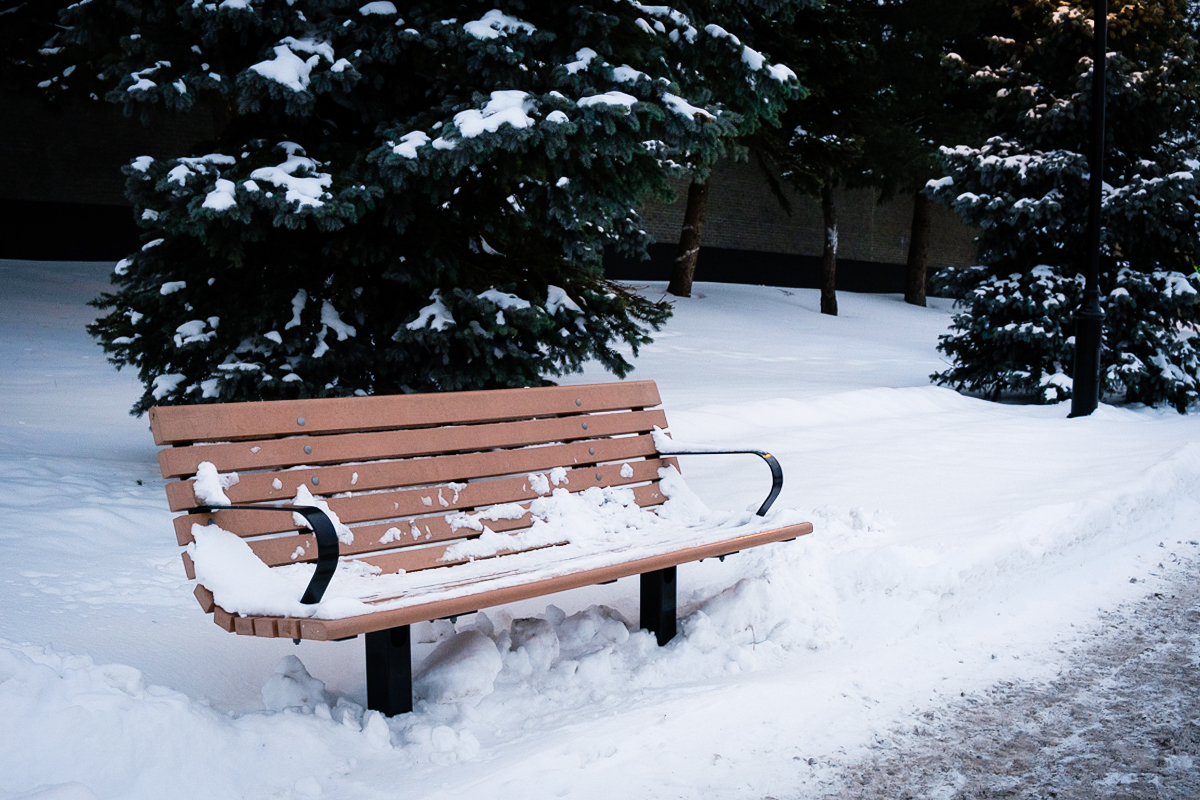Organizations supporting the homeless in Montreal say they lack funding and resources
Hugo, a homeless person for over seven years, roams the streets of Montreal. As the frost-covered snow treads under his boots on Ontario St. in Hochelaga, each step leads him to an undetermined destination. Though he’s currently refuged on a hidden street corner in a “non-declared shelter” to avoid the frigid temperature, he tends to avoid legitimate centres, fearing not only the loss of his autonomy but also not having access to the varying services he so desperately needs. “There are things that we need that are not allowed in shelters. When we need to take care of our morale, sometimes we hastily move to illegal aid even if we don’t have a choice.”
Limited capacities and service closures at shelters stemming from Omicron have steered some homeless people back to the streets.
On top of this, January has not been forgiving towards people who have either chosen or who have been refused access to shelters, as two homeless people have died within the past month. Those nights frigid temperatures dropped to -25 degrees Celsius.
Centres everywhere are feeling the constraints caused by Omicron. Welcome Hall Mission’s CEO Sam Watts can attest that organizations less fortunate than his own are feeling the effects, such as a lack of funding and resources. “There are a lot of organizations that have had to reel in their activities, in some cases shut down permanently or temporarily and who’ve struggled to supply adequate services for people in need.”
According to Mobilizing for Milton-Parc founder Sophie Hart, some shelters closed due to a lack of preparation for Omicron. “Shelters are congregated settings. Everyone eats together and sleeps in close proximity of each other.”
This setting creates a higher risk of transmissibility, prompting shelters to limit admissions. “[The] services they use when they need support are having to limit what they can offer,” Hart said. She’s personally dealt with people who are scared to catch Omicron.
Jocelyn is another person that has dealt with homelessness for roughly six months. Having many health problems, he hesitates to admit himself into a shelter solely due to his fear of catching COVID. “People in shelters don’t take care of their hygiene and end up with bacteria, microbes, and viruses,” he said. “I’d rather be out in the cold with a candle than die of COVID.”
According to Watts, there are two main reasons why some prefer autonomous living. One reason is based on some people exhibiting independence as a character trait, and another relates to the notion of social connectedness.
“One of the reasons people fall into homelessness is due to a loss of social connectivity, if you don’t have that network anymore you have lost that ability to connect into the system,” said Watts.
The rules put in place in shelters across Montreal have people like Hugo think twice about administering themselves into centres for help. “You have to be in accordance with the social workers whose job it is to fill in their own responsibilities for your safety.”
Though there are challenges regarding a “loss of freedom” that some people in shelters complain of, Watts considers these less like rules, and rather, expectations on how to behave within a shelter. “When you’re living in any kind of community setting, there are expectations people have,” Watts said. “A lot of people don’t like to live under certain norms and expectations and choose to live on the outside.”
Though two deaths outside of shelters are already too many, Watts believes that these outcomes are a product of an already flawed system that must welcome reform. Both Hart and Watts believe that a more tailored system is needed in order to accommodate the many varying needs and problems homeless people face. “What we should move towards are services for a variety of people,” Hart said. “There has to be services created for everybody in mind,”
According to Watts, the way in which people are currently cared for are based on principles of charity that must modernize within the 21st century. “It’s a handout, it’s ‘here take this,’ and then come back tomorrow and we’ll give you the same thing again.”
What Watts proposes is a system of “urban healthcare” that mirrors the steps one would experience when going to the hospital. “You’re registered, you’re triaged, you’re evaluated, a bunch of questions are asked of you, the healthcare professionals understand what the issue is, and chances are you get moved onto some other place in the hospital network where you can get the care that you need,” Watts said.
Watts is optimistic that a well connected, properly funded network will improve not only transparency between shelters and the homeless population, but also help them improve upon their situation. “Not that homelessness will disappear, but somebody who is experiencing homelessness will not have to wander around for months or years in a network of disconnected, charitably-oriented organizations to get care. They’ll be part of a continuum of care that actually seeks to help a person to get from A to B to C.”
Photo by Kaitlynn Rodney
